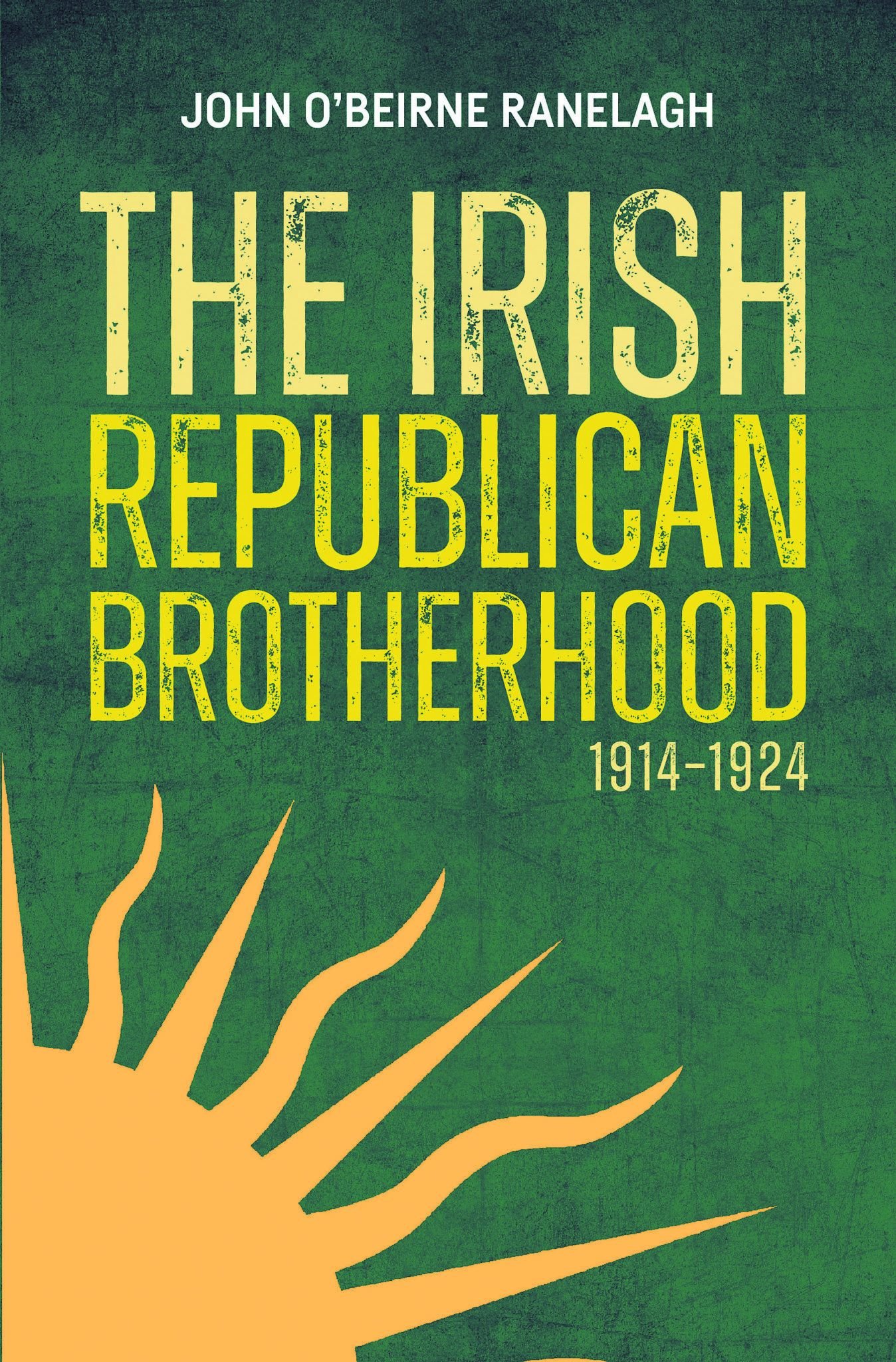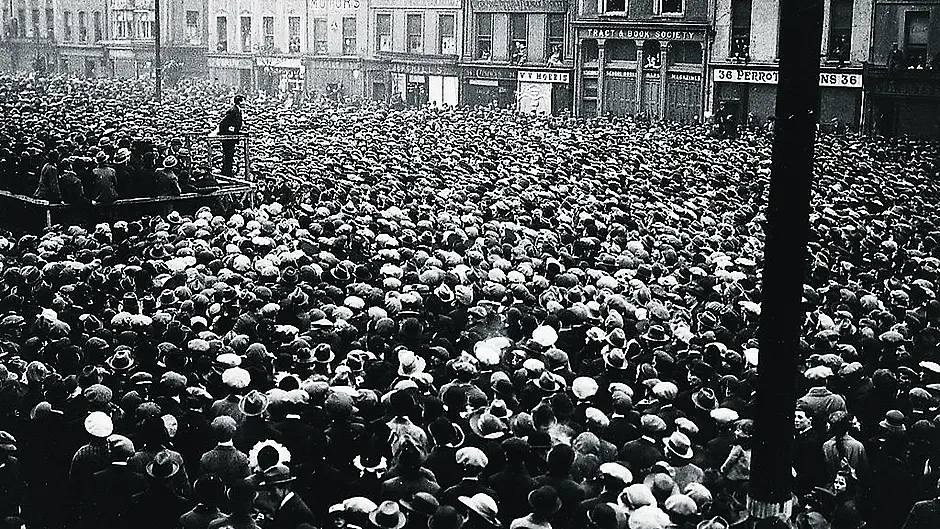In an extract from his new book on the Irish Republican Brotherhood, historian JOHN O'BEIRNE RANELAGH describes how the young and charismatic Michael Collins had a quick temper which was only matched by his quick wit and quick thinking – and how he always put Cork first.
BORN in West Cork in 1890, Collins had a fierce loyalty to his native county.
In London as a young post office worker he socialised with other Corkmen.
He was Joseph Plunkett’s aide de camp in the GPO during the Rising where he demonstrated his Cork romanticism:
‘There was an instruction about prisoners that their boots should be removed. I had the boots of the two [RIC] sergeants taken from them after they were brought into the GPO. Later the same day I had visited them and they complained of the cold. I reported the matter to Michael Collins. He went to see them, found they were two Corkmen, had their boots restored to them and got them some tea.’
As he rose in the IRB and the Volunteers/IRA, he gave preference to colleagues from Cork and to weapons for the Cork Volunteers/IRA.
‘In 1921 or something down in Cork they were running very short of guns and we had the guns, we had plenty of guns,’ remembered Thomas Taylor.
‘In any case, Mick Collins called a meeting in north county Dublin of our battalion … and he wanted those guns and our lads said he wouldn’t get them. And one of our lads who was a TD afterwards said, “Mr Collins, don’t think you can come down here to walk on us.” “Bejasus!” he said, “I’ll jump on you!” He was going to get the guns and he got them to go to Cork.’
Collins had enormous self-confidence. On his last trip to Cork in August 1922 he angrily said he ‘was not going to run from his own Corkmen’ when he was warned of the danger he would face.
Many colleagues perceived him as surrounded by a group of favourites, mostly from Cork, who promoted and defended him – and rose with him.
It was not surprising that he was viewed by Cathal Brugha and Éamon de Valera as overly if not uncontrollably ambitious, especially since he had little time for formalities or colleagues’ spheres of interest.
‘He had a mobile, expressive face, quick wit, and a quick temper,’ remembered Florrie O’Donoghue, a senior Cork IRB Volunteer/IRA man who knew Collins well.
‘He was gay, boisterous, optimistic, bubbling with dynamic energy. That would not have made a man of him, of course, but behind the dashing exterior there was keen intelligence, great strength of character, steadiness, determination and vision.’
‘He was a remarkable man, was Collins,’ said Robert Barton. ‘He had quite a good mind but he hadn’t got training. He’d only been to a national school. He had nothing more. And then he trained himself.’
Dinny Daly knew Collins as a 20-year-old in London where he worked in the postal service.
‘Through the GAA, I met Mick Collins, but he wasn’t any good at either hurling or football and, when I was playing against him, I’d play for his toes and that would make him mad. It was always easy to vex Collins … Collins would be inclined to lose his temper at anything, talk or not.’
But ‘he had a big heart and would give you his last shilling’.
Tom Barry, the noted Volunteer/IRA guerrilla leader, described him as ‘without a shadow of a doubt, the effective driving force’. Charles Russell, a National Army major general in 1924, said unequivocally that Collins was ‘the man’. ‘He was everything … Anybody knows that.’
Peter Carleton, a Fianna member in Belfast, said, ‘Even up here, Collins had an aura that no one else had.’
Eoghan Plunkett’s aunt, Geraldine, employed Collins in November 1915 to help manage Count Plunkett’s estate and found him to be excellent.
He was ‘completely honest and direct’, ‘too trusting’, ‘a good actor’, ‘unsophisticated except financially’, and ‘really intelligent’. ‘No one ever had a better clerk, he was far too good for the work I wanted done, quick and intelligent, a splendid organiser and took very little time to do much work.’
‘Collins was a man,’ said Joe Sweeney, who became O/C First Northern Division in 1921.
‘You’ll never meet his like again. I think he was the most dynamic man I ever met in my life. I never met anybody like him. He could tear strips out of you and the next minute he’d have his arm round you chatting away about something else.’
‘Where were you in 1904 when I and others were founding the Sinn Féin movement?’ asked a veteran whom Collins had addressed bluntly. ‘I was playing marbles, damn you!’
 The book is out now from Merrion Press.
The book is out now from Merrion Press.
• The Irish Republican Brotherhood 1914–1924 by John O’Beirne Ranelagh is published by Merrion Press and available now (hardback, €29.99)








